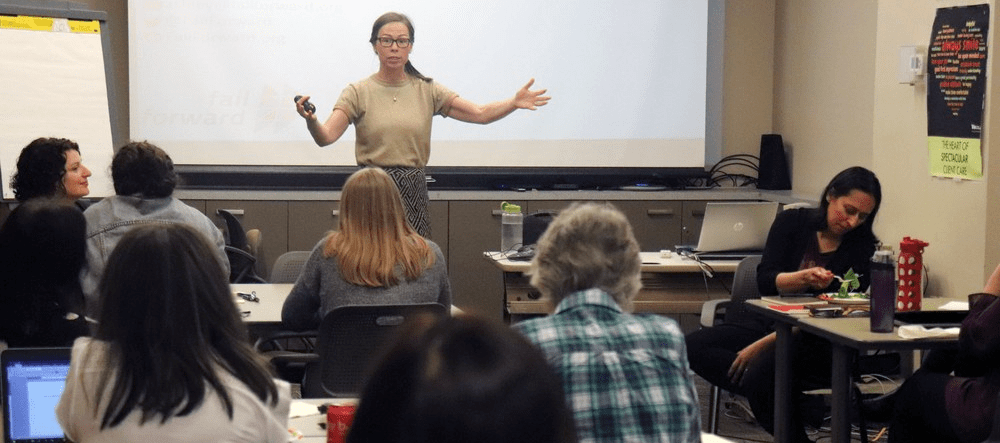Failing Intelligently to Succeed

New ideas and insights rarely turn into successful outcomes on the first try. Technology disrupts. Markets change. Failure happens.
With this in mind, VHA invited Ashley Good, the CEO and Founder of Fail Forward to share her expertise with a diverse group of staff about how to fail intelligently to succeed. Good helps diverse businesses, governments, funders, and non-profits—including Engineers Without Borders and the United Nations Environment Program—to harness their failures to learn, innovate, and build resilience.
The workshop at VHA explored what intelligent failure means and discussed how to create a team culture where learning and innovation thrive. Attendees left all their failure baggage at the door, and exchanged them for tangible skills, insights and actions to help them “fail forward.”
“Most of us have a tendency to mask failures or ‘blame’ ourselves. Either way, these responses aren’t really effective for learning,” says Pam Stoikopoulos, VHA’s Head Solutions Strategist and organizer of the session. “I think the workshop really helped people learn how to frame failures more constructively, so that they change what they’re doing to ultimately succeed. It’s this kind of iterative approach that’s so critical to an innovative mindset,” she adds.
What does intelligent failure look like?
To fail intelligently you need to go through a loop of fails, learnings, risk taking and innovation. Failing “forward” means:
- Learning from these mistakes and persevering.
- Analyzing and communicating shortcomings in a way that maximizes learning.
- Talking about fails in a productive way and without judgement.
- Asking ‘what’ and ‘how’ questions to create curiosity and better focus on learning instead of ‘why’ and ‘who’ questions which can take on a more accusatory tone.
- Taking risks and using learnings as guidelines for new innovation.
- Remembering that magic happens outside of people’s comfort zone.
- Not being afraid to fail again.
Good’s mantra is really to fail forward by acknowledging mistakes will be made, examining them to tease out lessons learned and continuing to take calculated risks to improve and innovate. For more information, please visit www.failforward.org
If you enjoyed this article, you may also like to read:
